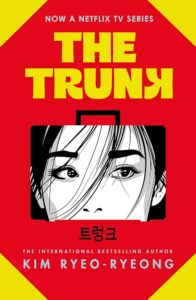
Author: Sanaka Hiiragi
Translator: Jesse Kirkwood
Genre: Contemporary Fiction / Magical Realism / Comfort Fiction
Ideal For: Readers who cherish contemplative stories about memory, mortality, and the small kindnesses that define us
Why I Picked It Up
The Lantern of Lost Memories intrigued me from its premise alone: a photo studio tucked between life and death, where the newly deceased relive their most treasured moments in image form before moving on. Promised as short, moving, and infused with warmth, this Japanese novella has drawn comparisons to Before the Coffee Gets Cold and The Kamogawa Food Detectives—comforting magical realism that lingers long after the page is closed.
Plot Summary (Spoiler‑Free)
Hirasaka runs a peculiar photo studio at the threshold of the afterlife. Each deceased visitor receives a box filled with daily photos from their life and must choose one per year to place onto a “lantern of memories.” If a selected photo is faded—a sign of over-revisited memory—Hirasaka offers to transport them back to retake the image, restoring the emotional vibrancy that time has washed away.
Told in three beautiful vignettes, the stories follow:
- Hatsue, a 92‑year‑old nursery teacher who fondly recalls her resolve rebuilding a school post‑war
- Waniguchi, a hardened yakuza whose unexpected compassion for a socially awkward boy reveals long-hidden depth
- Mitsuru, a young girl scarred by abuse who finally experiences moments of innocent joy—and prompts Hirasaka to break protocol for her sake.
Through them, the narrative threads gently reveal Hirasaka’s own lack of memories—only one photograph—hinting at an identity he’s lost even in death.
Why It Works So Well
1. Memory Made Visual and Emotional
Using photographs as metaphors for vivid memory is such a smart structural choice. Faded images illustrate nostalgia’s erosion—and revisiting pivotal days gives characters—and readers—a sense of emotional revision. The spinning lantern, though magical, touches a universal longing: to seal life’s meaning in one vibrant image.
2. Three Deeply Contrasting Lives
Each vignette is sharply drawn yet thematically connected. Hatsue’s century-spanning life offers gentle wisdom; Waniguchi’s underworld façade masks surprising tenderness; Mitsuru’s short life pulses with stolen moments of joy. You’ll feel for each character with grace and subtlety.
3. Hirasaka as Quiet Anchor
Unfathomable past, single photo, always watching—Hirasaka is part guide, part seeker. His accruing empathy, even though he has no memory of his own, lends emotional weight—and asks: who cares for the caretaker? His presence ties the vignette arcs into a gentle revelation of human need and memory’s power.
4. Minimalist Prose, Complemented by Rich Detail
Hiiragi’s prose is concise, almost spare—but rich in sensory detail: the taste of tea, the rustle of photos, the hush of a lantern spinning in dim light. Reviewers note how the writing feels like comfort fiction: healing, unforced emotional arcs that still cut deep.
5. Themes of Empathy, Regret, and Redemption
This isn’t a parade of misery—it’s about human resilience. Waniguchi and Mitsuru both reclaim dignity through small kindness; Hatsue reflects on a life lived with care. Each visitor’s lantern is a testament not just to what they did, but to who they became through decisions both ordinary and brave.
You’ll Love This Book If You Enjoy…
- Before the Coffee Gets Cold and The Kamogawa Food Detectives—: or quiet magical realism grounded in empathy
- The Cat Who Saved Books:for healing Japanese fiction with soul
- Readers drawn to short stories that carry emotional weight, like Sunday Philosophy Club by Alexander McCall Smith
Personal Highlights
- Hatsue’s nursery‑bus flashback: The image of a converted bus taught to toddlers she’d saved—emotionally resonant, historically rich.
- Waniguchi’s connection with “the Mouse”: A yakuza tough man softened by protecting a neurodivergent co-worker, culminating in a blurred photo retaken with compassion.
- Mitsuru’s joyful day with Hirasaka: A long slide, burning sweet potato, laughter among leaves—a tiny life reclaimed in one vivid memory, all under Hirasaka’s hopeful gaze.
- Hirasaka’s lonely photograph: The tragedy of a guide with no memories of his own—a single image of a smiling forest—becomes the novel’s quiet mystery and emotional tether.
Final Thoughts: Gentle, Thoughtful Literature That Stays with You
The Lantern of Lost Memories is a small novel with a vast emotional reach. Through its three stories and compassionate caretaker, it asks us to reckon with memory, forgiveness, and the true weight of daily choices. It’s not about closure—it’s about what remains bright when all else fades.
It’s a five-star comfort read with surprising depth, perfect for readers who want affirmation that every life matters, and that even forgotten souls can leave behind small glimmers of meaning.


